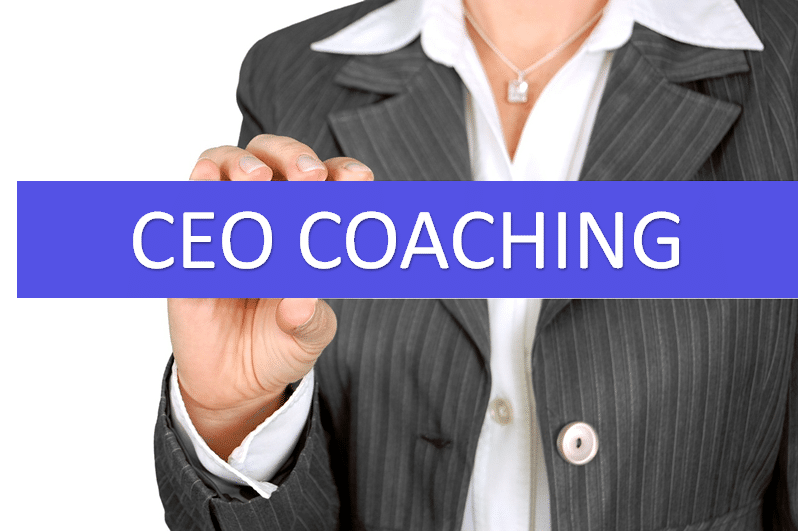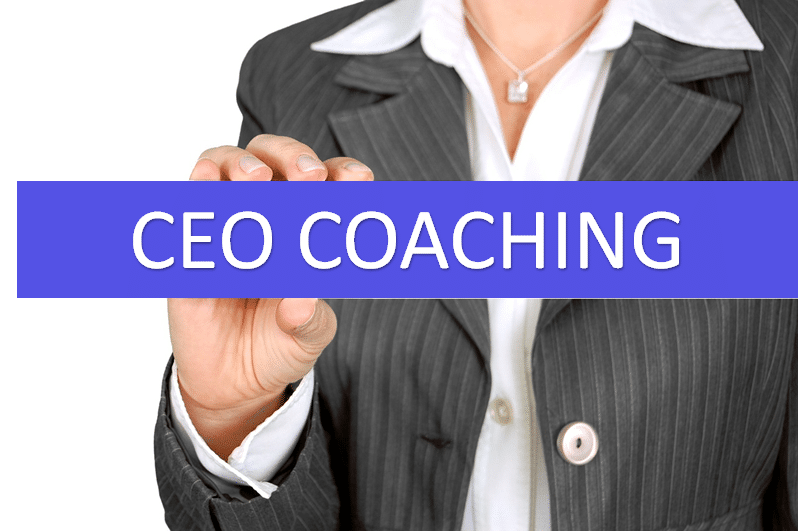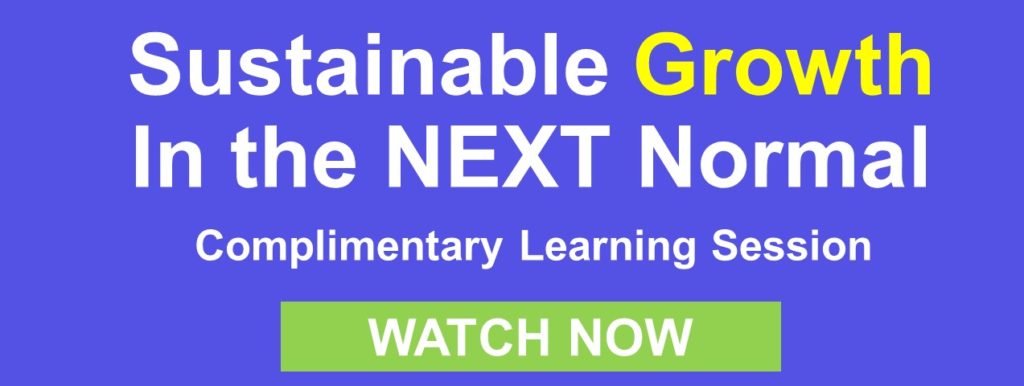
CEO coaching – the what, why, and how of it
CEO coaching – What is it? Why do CEOs need coaching? What are the CEO coaching areas? How to choose the right CEO coach?
The job of a CEO is challenging
The pressure to perform on the CEOs is higher than ever. Flatter organizations, the fast pace of change, technological advancements, competition for good talent, globally diverse workforce, changing customer demands, global competition in a connected world – are some of the many challenges facing the CEO. These factors keep the CEOs awake at night worrying about their current growth and profitability, and future sustainability.
Who does a CEO ask for help?
At lower rungs of the corporate ladder, executives have a boss to fall back to and ask for help or advice. To decide the strategic direction, to give advice, to motivate, to guide. When a CEO needs guidance, motivation, and clarity, whose help does the CEO seek? The answer most of the time is – no one.
Any CEO of a large organization is expected to portray confidence and competence. If a CEO publicly admits to being unsure or doubts the strategic direction, the consequences can be severe. The board and the executive team may judge the CEO as being weak, indecisive, or incompetent. One wrong sentence from the CEO’s mouth can wipe off mega millions from its market cap for a publicly traded company. The impact of the CEO’s decisions (or the lack of them) is far-reaching. Stakes are high. A lot is on the line. Ceo’s actions affect many people both within and outside the organization.
Urgent drowns the important
CEOs are constantly bombarded with urgent issues. The demand for the Ceo’s time and attention is relentless. They live in an environment of permanent urgency. It is not unusual for a CEO to get into a reactive mode. They hardly have time to take a pause, reflect and think. CEO coaching creates a safe space for reflection and reevaluation of what the CEO is doing.

The CEO coaching paradox
It is a paradox that the one person who probably has the most significant impact on the company’s profitability and employee’s well-being cannot ask for help for himself or herself. CEOs often lose sleep at night considering and reconsidering their own decisions and the consequences of their decisions. It is lonely at the top – is often true for the CEOs where they have to fight their battles on their own – silently and without asking for any help. Unfortunately, the CEOs are also human, and they need help too.
Every top performer has a coach!
Think of any sport – football, tennis, basketball, or soccer. Every top player in any of these sport has a coach. They wouldn’t dream of doing it on their own. The coach provides an external perspective, support, challenge, and reinforcement to sustain high performance. CEO coaching provides a respite from the world of noise and distraction. CEO coaching is where the leader can calm down, distance from the urgent, think, prioritize, focus and get back into the proactive mode.
A majority of CEOs still don’t get the coaching they need
Top performance as a CEO of a large organization is equally challenging. Why do we expect the CEOs to perform at their best without the help of a coach? And yet 2/3rd of the CEO doesn’t use a coach – according to a study of over 200 CEOs by Stanford University and Miles. The study also confirmed that most CEOs want coaching. CEOs are more open than ever to CEO coaching. Unfortunately, most CEOs don’t get the outside coaching they need. Harvard article states that while most CEOs want CEO coaching and want advice on their leadership skills, two-thirds of the CEOs don’t hire an external coach.
In the past, CEO coaching was seen as remedial. The perception was that if the CEO needed coaching, it meant that she was not capable enough to handle things herself. Fortunately, this incorrect perception is changing rapidly. CEO coaching is now seen as developmental – helping a successful CEO achieve higher levels of success for himself and his organization. Many CEOs now openly admit to having a coach and recommend others to hire a CEO coach.
Top CEO’s believe in coaching
Steve Jobs, the then CEO of Apple, had a coach. Bill Gates, the former CEO of Microsoft, had a coach. Eric Schmidt, the former CEO, had a coach. Bob Nardelli, the former CEO of Home Depot, had a coach. These highly successful CEOs vouch for the benefits of having an external coach.
“Everyone needs a coach. It doesn’t matter whether you’re a basketball player, a tennis player, a gymnast or a bridge player. We all need people who will give us feedback. That’s how we improve.” Bill Gates
Every famous athlete, every famous performer has somebody who’s a coach. Somebody who can watch what they’re doing and say, “Is that what you really meant? Did you really do that?” They can give them perspective. The one thing people are never good at is seeing themselves as others see them. A coach really, really helps. – Eric Schmidt – former CEO at Google
“I absolutely believe that people, unless coached, never reach their maximum capabilities.” Bob Nardelli former CEO at Home Depot
Many studies have shown a clear correlation between the CEO’s performance and their access to good CEO coaching.
The why of CEO coaching
Here are some reasons why CEOs need coaching. As a leader moves up the career ladder, both the quantity and the quality of the feedback he/she receives goes down. Employees want to be on the good side of a senior leader. They often offer lavish compliments to their leader while avoid mentioning their shortcomings. They hold back or sugar coach any critical feedback to the leader. Often the leader only gets positive feedback and reinforcement. Their ego gets inflated, and they usually start believing in their own PR. The higher the leader is up the career ladder, the more chances that the leader will be detached from reality. This is where CEO coaching fills the gap.
What does a CEO coach do?
Every single person who meets the CEO often has their own (and often hidden) agenda. The CEO coach has only one agenda – to help the CEO lead more effectively. A CEO coach is a skilled professional who listens non-judgmentally. The CEO can communicate openly without fear of being judged or the fear of personal and organizational consequences. The CEO coaching session is safe to discuss issues, fears, doubts, and shortcomings in a safe environment. Coaches listen. They are non-judgmental. They allow the leader to reflect in a supportive environment. They ask powerful questions. They provide clear and honest feedback in a non-threatening way so the CEO can take stock and clarify priorities.
CEO coaching also helps the leader to get honest and accurate feedback on their own behaviors from other team members. Without feedback, the leader would be blind to how others perceive the leader’s behavior. The CEO coach almost always uses a 360-degree feedback tool to gather anonymous feedback from the leader’s team and deliver it to the leader while maintaining the feedback givers’ confidentiality.
If you would like to know more about the best 360-degree feedback tool, read my article.
Read: 360-degree feedback A complete guide with a questionnaire.
The CEOs technical vs. behavioral skills
Think about two C suite leaders who are more or less equal in experience, past performance, and leadership ability. Both leaders are the candidates to be the future CEO. Which one of these two leaders has a better chance of success? What leadership qualities and behaviors do you look for in them?
Do you look for technical skills? Do you look for people skills? Daniel Goleman’s research has shown that emotional intelligence accounts for 7/8th of the difference between the top performers and the bottom performers at the C-suite level. Technical skills only account for 1/8th of the difference. By the time any leader reaches the C-suite level, they certainly will have “adequate” technical or functional skills, or else they wouldn’t make it to the C-suite. The difference then is the leader’s emotional intelligence – the ability to understand and manage own emotions and gauge others’ emotions and use it to build relationships.
Also, the CEO or C-suite leader doesn’t really handle any of the techniques of functional aspects on their own. Almost all of the work a CEO does, he/she gets it done through others. Hence, at the C-suite level, emotional intelligence (or people skills, to put it simply) accounts for 7/8th of the difference.
Almost always the CEO coaching involves coaching the CEO in people skills and behavioral aspects.
CEO coaching areas
What areas do CEOs want help from the CEO coaches?
Dr. Marshall Goldsmith conducted large-scale research on real leaders in large multinational organizations to understand what behaviors make leaders successful. He found these 15 competencies and behaviors essential to today’s global leader. These 15 competencies are grouped into five clusters.
Here are the five clusters and fifteen competencies
- Communication
- Demonstrating integrity
- Encouraging constructive dialogue
- Creating a shared vision
- Engaging people
- Developing people
- Building partnerships
- Sharing leadership
- Boundary-less inclusion
- Empowering people
- Thinking globally
- Appreciating diversity
- Assuring success
- Developing technological savvy
- Ensuring customer satisfaction
- Maintaining a competitive advantage
- Continuous change
- Achieving personal mastery
- Anticipating opportunities
- Leading change
We use the GLA 360 degree assessment tool to assess the strengths and improvement areas for CEO coaching. GLA 360 also allows the comparison of the leader’s scores with a norm group of global leaders.
Here are the top 20 growth areas selected by the CEOs worldwide
Here is another way to look at the CEO coaching areas. Below are the most frequently selected areas for leadership growth and CEO coaching by leaders worldwide. This list is compiled from the global leaders who have undergone CEO coaching using our award-winning process.
Communication:
- Communicate/listen better
- Decision making (incl. e.g., speed of decision making, including opinions of others in decision making)
- Be more assertive (incl. speaking up for own beliefs & opinions)
- Manage conflict constructively, timely, and effectively
- Influencing / persuasive
Developing organizational culture & leaders:
- Managing diversity
- Build cross-functional relationships
- Cross-cultural management
- Stand up to people undermining teamwork
- Collaborate better with others (incl. being more respectful to others)
- Building trust with stakeholders
- Executive presence
- Self-confidence
- Driving team, I culture change
- Coaching and mentoring
Managing performance:
- Delegate effectively
- Empower direct reports
- Execution for results (incl. focus execution and resources on few critical business issues)
- Strategic thinking
- Be more entrepreneurial
- Take calculated risks
- Hold others accountable for results
- Deal timely with performance problems
When CEO coaching won’t work
Here are a few situations where CEO coaching will not work
- The CEO is unwilling to change. Behavior change is one of the most difficult things for grown adults. It is even more difficult if the adult is a successful leader! Without the CEO’s awareness, acceptance, and the need for change, coaching is unlikely to succeed.
- The company and its board have written off the CEO. When a CEO has lost the board’s trust, there is little chance for the CEO coaching to succeed. In such scenarios, the board often uses coaching to confirm the CEO’s inability to lead effectively.
- The CEO is a mismatch for the role. The CEO may not have the skills or experience for the role. In such cases, there is little chance that CEO coaching will help improve the performance.
- The CEO is pursuing the wrong strategic direction. If the CEO is going in the wrong direction, CEO coaching may help get there faster! CEO coaching is no substitute for an incorrect strategy.
The basic premise in CEO coaching is that the CEO needs help with behavioral issues. Or else the coaching will not help.
Read: 9 Reasons Why Executive Coaching Fails in Organizations
How to choose the best CEO coach?
As I mentioned earlier in the article, there a multitude of expectations from the CEO. A lot is riding on the CEO’s success. Hence it is essential to hire the right coach for the CEO coaching assignment.
What do you look for in a CEO coach? What criteria do you use to evaluate various CEO coaches?
Here are a few points to consider
- Can the coach strike a balance between supporting and challenging the CEO?
- Can the coach gather honest feedback from the team and deliver it to the CEO?
- Does the coach have a structured process and a tested coaching methodology?
- Can the coach maintain strict confidentiality?
- Does the coach role model the desired behaviors and bring a calm and assuring presence?
To delve more into the details of how to select the right CEO coach, read the article.
Read: How to find the best executive coach for you or the leaders in your organization?
Who is the best CEO coach?
Dr. Marshall Goldsmith is considered probably the best CEO coach in the world. He has coached over 150 CEOs of Fortune 500 companies. Over the years, he has distilled his CEO coaching process into a very successful stakeholder-centered coaching process. Over a million senior executives worldwide have been coached using this process.
Tushar Vakil is considered one of the top CEO coaches in the Indian sub-continent. He is certified by Dr. Marshall Goldsmith and has coached over 300 C-suite leaders and CEOs in large organizations across the US, India, Middle-East, Africa. He is recognized in the top 100 global influencers list by People hum. He brings the skills and experience to impact the leaders at the highest level.
Read: What are the best executive coaching programs & the top executive coaching firms?
Get the best CEO coaching and methodology.
We bring a tried and tested process to CEO coaching that has a 95% effectiveness rate.
We offer our New Age Leadership – NAL Triple Advantage CEO Coaching.
That delivers guaranteed and measurable leadership growth. It is based on a stakeholder-centered coaching process with a 95% effectiveness rate (in a study or 11000 leaders on 4 continents). It is used by companies ranging from startups to 150 of the Fortune 500 companies to develop their leaders.
Here are some of the salient benefits of NAL Triple Advantage Leadership Coaching.
Time and resource-efficient: The leader does not have to leave work to attend training programs. We go to the leader and her team. And it only takes 1.5 hours per month. The rest of the time, the leader is working to implement with her team.
Separate and customized improvement areas for each leader: Every leader is different. One size fits all approach doesn’t work. Individual development areas for each leader are aligned to the business strategy.
Involves entire team: Unlike most leadership programs, NAL Triple Advantage Leadership Coaching involves the leader’s entire team, and it has a cascading effect – increasing the team effectiveness and improving organizational culture.
The leader becomes the coach: for continuous improvement for leaders themselves and their teams. It is like kaizen for your leadership development.
Cost-Effective: Our entire one-year coaching engagement often costs less than sending the leader to a short-duration leadership program at any reputed B school.
Guaranteed and measurable leadership growth: as assessed – not by us – but anonymously rated by the leader’s own team members.
Pay us only after we deliver results! : We work with many of our clients on a pay for results basis. What does it mean? If the leaders don’t improve, you don’t have to pay us.
Schedule an exploratory 15-minute conversation with our leadership adviser today
SCHEDULE NOW!
Reference
https://hbr.org/2013/08/research-ceos-and-the-coaching


